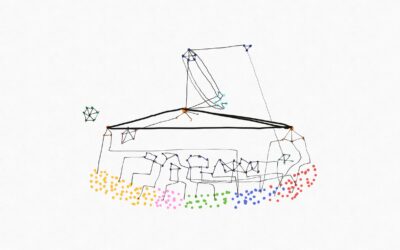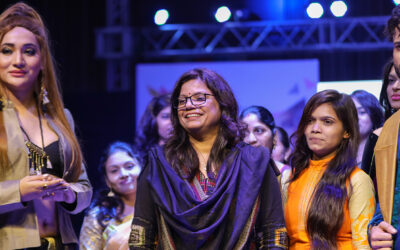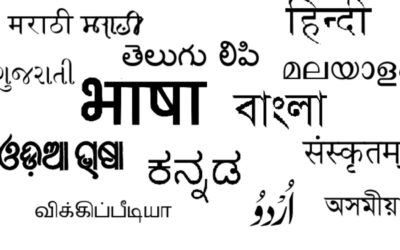It is that time of the year when days are long and the nights are longer. When the hands have slipped under the warmth and weight of binded bundles and the atmosphere is quieter than usual. Seasons change, habits change but the children of my school in Mandwa, Kotda don’t. They will! is another argument.
A persistent monotony, the sound of pages being flipped mindlessly, some eyes fixed at the text-books; (the eye contact seems so steady that it makes the onlooker uncomfortable), some eyes overlooking the window, some are meticulously looking at cobwebs or the broken window grill and some are passing glances and smiles at each other while trying to duck as much as possible to go unnoticed. Then there are the class scholars, the lowest count, who are busy writing, reading, discussing and again writing.
The education system here always keeps me busy in making sense out of it. A week remains for exams to begin. Subject list reads – Science, Social Science, Mathematics, Hindi, English and Sanskrit. As per my recollection there is no Science and Mathematics teacher in entire Kotra (leave aside my school) block of Udaipur district in south Rajasthan. How will they (children of class eighth) manage? How have they been managing over the years? My mental conversation gets disrupted in the middle by a ‘दीदी ज़रा यहाँ आना’. I smile in acknowledgement.
‘दीदी हमें ज़रा विज्ञान किताब से पढ़ा दो, कुछ भी समझ नहीं आता’ (Didi teach us Science from the book, we don’t understand anything). I bend down to sit and within no time I am surrounded by a group of science enthusiasts. I opened the text book, ‘जैव विविधता’ (bio-diversity) the title reads. Since I had no idea of the printed text, I asked one of the children to read the text aloud. He said he didn’t know how to read.
Surprising?
According to the ASER statistics of class eight of Mandwa school (which I conducted prior to my intervention here as a baseline) only seventeen of twenty eight children can both read and comprehend basic Hindi text. A strange number considering that it has been almost seven years since they have been exposed to the language. The ASER data for Mathematics points towards the abysmal condition of the standard of education in the school with only thirteen children of thirty two at level four in class eight (level four – single digit division).
We move forward and I try to read out the text and explain it to them. The lesson was going on well, when one of the child stopped it in the middle to ask that one question which well, should have been answered long, quite long ago – ‘दीदी ये विज्ञान होता क्या है?’
After sometime the children sat in a circle around me. ‘दीदी हमें कभी विज्ञान पढ़ाया ही नहीं गया, आज तक हम लोगों ने विज्ञान की किताब नहीं खोली| कभी किसी ने गणित भी नहीं कराई| हम लोग खुद से ही सीखने की कोशिश करते हैं, पास बुक बहुत मदद करती है। सवालों के सारे जवाब पास बुक में होते हैं, हम उन सवालों को बार बार लिखकर रट लेते हैं। परीक्षा में सारे सवाल पास बुक से आते हैं और बाकी टीचर्स मदद करते हैं परीक्षा के समय। वो हम लोगों को जवाब बताते हैं कुछ सवालों के ताकि हम बस पास हो जाएं।
The children who sat with me in the circle are those handful bunch of enthusiasts who enjoy coming to school and are self-motivated and driven.
What about the rest?
Let us for one day forget what the real purpose of education was or what is wrong with ‘Indian Education System’. Let us only focus on the current education scenario in India and the emphasis that is laid on the ‘Examination Culture’. Where exactly can these children be placed in that? My mind startles at the thought of those eight years that the child has spent in coming to the school. What did that child learn in her primary classes when she still struggles when asked to write? What was it that she did back then, when it is in her ninth class that she is learning how to add and subtract? How did she manage to clear the classes without the knowledge of these fundamental concepts? Is it of any importance or significance of conducting examinations for the children?
Is the mere declaration of clearing twelve grades enough for a person to be deemed as educated!
In 2018, almost 40% of the tenth class in Mandwa school could not clear their board examination, leading to drop outs. All of them flunked in science, which considering the scenario doesn’t seem odd. Only one from the bunch of forty children could get second division. Just one. More than 80% of the children attain D or C grade in their board examination deeming them fit for their successive classes. After completing 12th standard most of the children opt for private college which means that they will only go to the college for giving exams. Not to forget that college is worst hit than compared to the schools of the region.
The current trend in the schools of Kotda points towards the already existing gaps in the urban and rural setup in education, besides many other. The system of education in this region seems to be doing more harm than good at this point of time. There is no denying that there has been a shift, which is inevitable. The cause of concern is the pace of the shift.




0 Comments